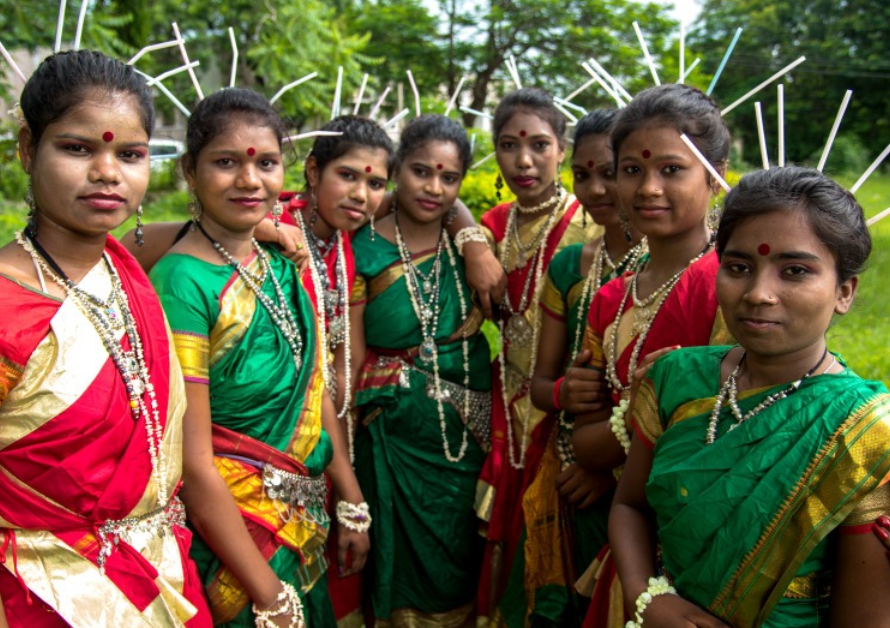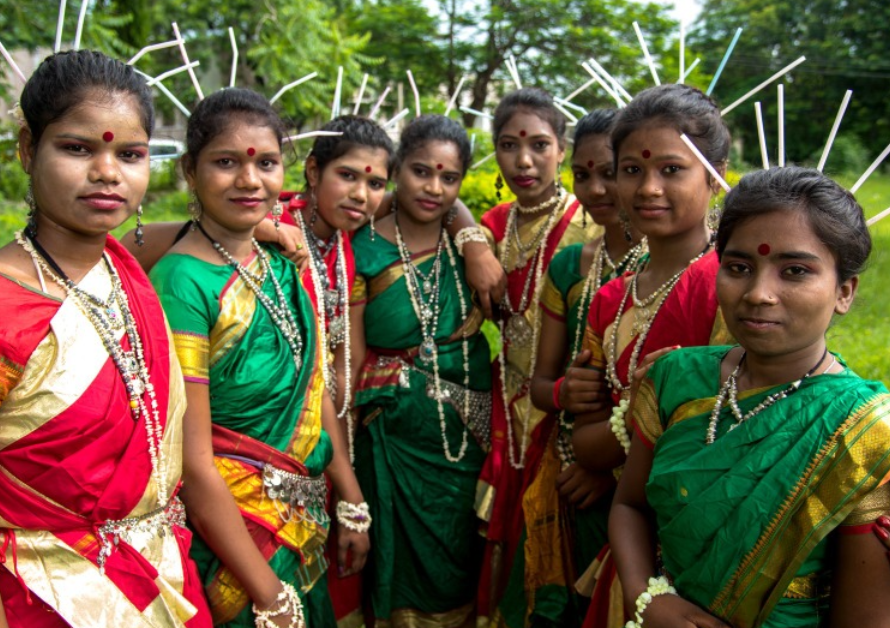The accusation that Prime Minister Narendra Modi and the BJP are working to make India a Hindu nation has garnered much attention. For a moment, let’s assume this claim is true. Why is it so controversial for India to be recognized as a Hindu nation? After all, India is the holy land and motherland for Hindus worldwide. With 95% of the global Hindu population residing in India, the country is not only the heart of a 5,000-year-old Sanatan Hindu civilization but also the cultural and spiritual center of Hinduism.
Other religions have their spiritual homelands and countries that align with their religious identities. There are 53 Muslim-majority countries, of which 27 have officially adopted Islam as their state religion. Over 100 Christian-majority nations, including the UK, Greece, and Denmark, recognize Christianity as their state religion. Even Buddhism has official state religions in six countries, and Israel is a recognized Jewish state. Yet, when India contemplates becoming a Hindu nation, opposition arises from leftists and self-proclaimed liberals who cannot provide a convincing reason for their disapproval.
Historical Context and India’s Tolerance
India’s history shows that its secular character and religious tolerance are deeply rooted in Hindu culture. Parsis, Jews, Christians, Jains, Sikhs, and Buddhists have found refuge in India for centuries, thriving under the protection of Hindus. Even though Hinduism is the third-largest religion globally, its geographic spread is limited primarily to India. Unlike other religions that have a history of expansion through conversion, Hinduism does not engage in aggressive proselytism, making it inherently tolerant and inclusive.
Some argue that a Hindu nation would threaten India’s secular nature. However, India’s secularism is not the result of a constitutional amendment in 1976 but stems from the intrinsic tolerance of its Hindu majority. The secular nature of India has endured because Hinduism itself is secular and pluralistic in spirit. It is this foundation that has allowed minority religions to flourish within India, unlike many countries where religious minorities are often persecuted or marginalized.
Double Standards in Global Perception
A critical examination of global politics reveals glaring double standards. Why is it acceptable for countries to declare themselves Muslim, Christian, or Buddhist nations, but controversial for India to declare itself a Hindu nation? Why are discussions of human rights violations against Hindus and Sikhs in Pakistan, Bangladesh, and Afghanistan met with silence? Historical events, like the massacre of Hindus by the Pakistani army in 1971 or the destruction of Hindu temples across the Arab world, are conveniently forgotten.
Meanwhile, within India, the government’s policies have often favored minority communities at the expense of Hindus. The Haj subsidy, for example, is an unusual state-sponsored support for a religious pilgrimage in a supposedly secular country. Hindu taxpayers have funded this subsidy for years, even while Hindu symbols and practices are banned in countries like Saudi Arabia, which continues to propagate Wahhabi extremism globally. In contrast, Hindu pilgrims receive no similar financial support from the Indian state for pilgrimages like the Amarnath Yatra or the Kumbh Mela.
The Path Forward: Hindu Nation and Secularism
The misconception that a Hindu nation would mean the end of secularism is unfounded. In fact, establishing India as a Hindu nation could reinforce secularism by ending fraudulent religious conversions and reducing the political appeasement of religious minorities. Hindus are inherently secular because they believe in the coexistence of multiple faiths. By recognizing India’s Hindu identity, the country would reaffirm its commitment to protecting not only Hindus but also other religious groups like Buddhists, Jains, and Sikhs, who share a cultural and spiritual connection with Hinduism.
A Hindu nation would also bring about the much-needed implementation of a Uniform Civil Code, ensuring that all citizens, regardless of religion, are subject to the same legal framework. It would curb practices that have long fueled religious conflicts, such as forced conversions. Additionally, it would uphold the rule of law—a vital element for any nation’s development—by ensuring that all citizens are treated equally.
A Call for Awareness and Unity
Hindus have been slow to recognize the long-term efforts of various groups to change India’s demographic and cultural fabric. The silence surrounding critical issues like the forced exodus of Kashmiri Pandits and the destruction of 50,000 temples in Kashmir underlines the failure of previous governments and leftist intellectuals to protect Hindu heritage. When 50,000 temples were closed or destroyed in Kashmir, there was no media outcry, yet even minor incidents involving other religious sites are covered extensively by the press.
The Modi government has begun to address these historical wrongs, with efforts to rebuild these temples. However, the deep scars left by decades of neglect, appeasement, and mismanagement of Hindu interests must not be ignored. It is time for Hindus to recognize their past, assert their identity, and work towards securing the future of their religion and culture in India.
Conclusion: Hindutva and Secularism—Two Sides of the Same Coin
Secularism in India has survived because of Hinduism, not in spite of it. Hindutva, far from being a divisive ideology, is about protecting India’s ancient heritage and ensuring that Hinduism continues to thrive in its birthplace. Declaring India a Hindu nation would formalize what has always been true—India is the home of Hindus, a country where they have lived, worshipped, and prospered for millennia. Far from being a threat to secularism, a Hindu nation would strengthen it by promoting equality, unity, and the rule of law. India’s strength lies in its diversity, but that diversity can only be protected when its Hindu roots are acknowledged and preserved.
Relevant Examples, Case Studies, and the Way Forward
- Historical Context: Religious Tolerance and Preservation of Hindu Culture
Example: India’s Treatment of the Parsi and Jewish Communities India’s religious tolerance is best exemplified by how the country gave refuge to Parsis and Jews when they were being persecuted around the world. Parsis found refuge in India in the 8th century, and Jews arrived over 2,000 years ago, where they lived peacefully and contributed to the development of the country. These communities continue to thrive in India today, practicing their religious customs without fear.
Case Study: Jewish Settlement in Coastal Kerala The Jewish community’s settlement in Cochin, Kerala, is a testament to India’s long-standing tradition of providing refuge to those in need. The 1,800-year-old Jewish community in India has not only preserved its religious beliefs but also contributed to the Indian society.
Conclusion: This example shows that even if India becomes a Hindu nation, its historical tradition of tolerance and diversity will continue. India has always embraced religious plurality, and becoming a Hindu nation will only strengthen this legacy. - Other Nations’ Perspectives: State Religion and Religious Freedom
Example: Islam as the State Religion in Muslim-Majority Countries Countries like Saudi Arabia, Pakistan, and 27 other nations have declared Islam as their state religion. Despite this, many of these countries offer limited degrees of religious freedom to their citizens. For instance, Saudi Arabia has strict bans on non-Muslim religious symbols and places of worship, yet it continues to export Wahhabi extremism worldwide, including to India.
Case Study: Saudi Arabia and the Haj Subsidy A notable case is India’s Haj subsidy, where Hindu taxpayers’ money was used to fund the pilgrimage of Indian Muslims to Saudi Arabia, a country where Hindu symbols are banned, and temple construction is illegal. Since 2000, over 1.5 million Indian Muslims benefitted from this subsidy, until the Supreme Court of India intervened in 2012, ordering its gradual removal.
Conclusion: If other nations can adopt religion at a state level, India too has the right to embrace its Hindu identity. Despite this, India’s religious tolerance will ensure that minority communities continue to enjoy their religious freedom. - Coexistence and Contributions of Minorities in India
Example: Development of the Parsi and Jain Communities Minority communities like the Parsis and Jains, despite being small in number, have significantly contributed to India’s economy and culture. The Tata Group, a pillar of the Indian economy, belongs to the Parsi community. The Jain community is one of the most affluent and educated in the country, and their peaceful coexistence reflects the tolerant nature of Indian society.
Case Study: Growth of Buddhism and Sikhism Buddhism and Sikhism, which are offshoots of Hinduism, have flourished in India. India not only gave birth to these religions but also played a significant role in their global recognition and spread. The peaceful coexistence of these religions has made India a unique cultural and religious confluence.
Conclusion: Becoming a Hindu nation will further secure the space for other religions in India, as Hinduism is inherently tolerant and accepting of diversity. - Need for the Preservation of Hindu Culture
Example: Displacement of Kashmiri Pandits and the Destruction of Temples During the 1990s, Kashmiri Pandits were forcibly displaced from their homes, and more than 50,000 temples were either destroyed or closed. This is a clear example of the atrocities faced by the Hindu community, which were ignored for years. The central government’s recent efforts to rehabilitate Kashmiri Pandits and rebuild temples are positive steps, but the enormity of the situation—50,000 temples—leaves one speechless.
Case Study: Government Control of Temples Hundreds of Hindu temples in India are under state government control, while mosques and churches remain completely autonomous. The income from these temples is often used for non-religious purposes, threatening their autonomy and sanctity.
Conclusion: Becoming a Hindu nation will prioritize the autonomy and preservation of temples, ensuring that religious heritage is safeguarded.
The Way Forward: Steps Toward Becoming a Hindu Nation
Implementation of a Uniform Civil Code: A Hindu nation should implement a Uniform Civil Code, which would apply a single law to all citizens, regardless of religion. This will eliminate religious-based discrimination and ensure equal treatment for all.
Strict Control Over Religious Conversions: A strong law must be enacted to prevent fraudulent or forced conversions, which will help maintain religious harmony and allow all citizens to practice their faith without fear.
Restoration of Temple Autonomy: Hindu temples must be freed from government control and granted autonomy to manage their own affairs, ensuring that their assets and religious activities remain undisturbed.
Establishing the True Definition of Secularism: India’s secularism is inherently based on the tolerance of Hindu culture. This should be formally recognized, and India should proudly identify as a Hindu nation while respecting all religions.
Inclusion of Hindu Culture in the Education System: Hindu history and culture should be given prominence in the national education curriculum so that future generations remain connected to their roots and develop a sense of cultural pride.
Conclusion
India becoming a Hindu nation would be a natural step that would preserve its cultural and religious heritage. It would symbolize the inherent tolerance and diversity of Hinduism, where followers of all religions could freely practice their faith. A Hindu nation would not only strengthen India’s cultural roots but also establish it as a sovereign, strong, and respected global power.







